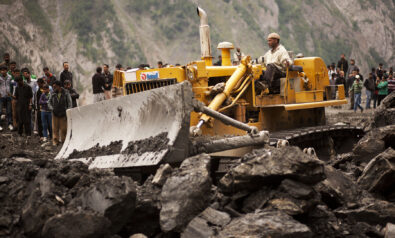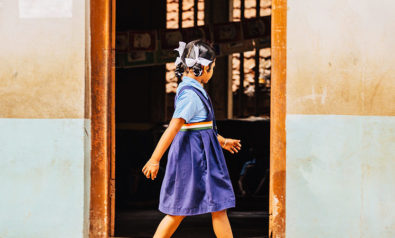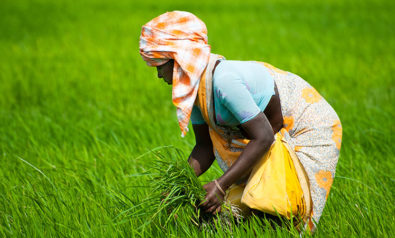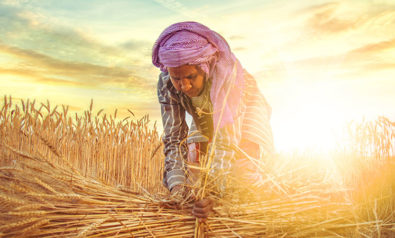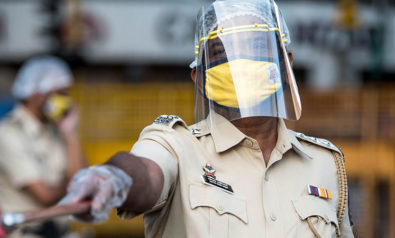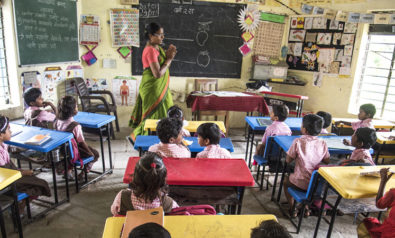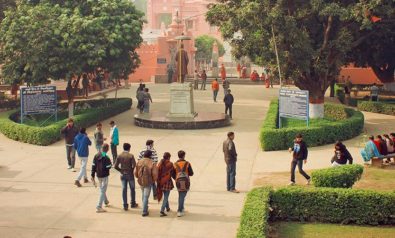It was instructive that probably the most consequential event in the life of the Indian Republic merited nothing more than three pro-forma single-sentence references to “epidemics and pandemics” in the recently-adopted National Education Policy 2020. The policy must have been discussed and agreed by the Union Cabinet wearing masks, a clear and present reminder of how much has changed. Yet the document approved acknowledges COVID-19 only to exhort higher education institutions to undertake epidemiological research and advocate greater use of technology in delivery mechanisms.
360˚ Context: The State of the Indian Republic
That is a pity. COVID-19 has brought lessons in its wake that we will ignore at our peril. In a societal sense, the pandemic has laid bare the fragile and counterproductive assumptions that underpin the way we have organized ourselves. Education, as the primary mechanism that drives long-term change in a society, must respond in a way that protects and strengthens children today and the nation tomorrow.
Institutionalisation of Education
Three important mechanisms of social organization that have been taken for granted in education during recent decades are institutionalization, urbanization and globalization. If COVID-19 is not a one-off event — and there is no reason to assume that it is given how exploitative our engagement with our environment continues to be — each one of them must be reassessed for worth, especially for how they affect the future of our children.
Institutionalization has promoted the idea that the only learning worth our children’s time and our money is the one that is provided in schools, colleges and universities. Across most of the world, this has made learning information-centric and uncritical. It has packed children into rows and columns in classrooms and made them unfamiliar with their surroundings. It has taken them away from the productive use of their hands and bodies, and valorized “brain work,” creating an artificial crisis of periodic unemployment even before the unimaginable destruction of employment caused by COVID-19.
It has snapped children’s’ connections with their land, their environment, their culture and their communities, replacing them with words in ink on paper or typeface on a computer screen. In India, a mindless pedagogy has further ensured that institutionalization fails even in its own objectives as student achievement in “learning metrics,” mainly focused on literacy, numeracy and data, has kept falling.
With pre-school centers closed, COVID-19 has brought attention squarely to the role of parents in the holistic development of their young children. (We started Sajag, a program for coaching caregivers in nurturing care in April 2020. It now reaches over 1.5 million families and is set to expand further. Many others have started similar programs.) By forcing the closure of schools and colleges, COVID-19 presents us with the opportunity to explore what exactly is being lost when schools close. It also creates the possibility that we will discover how much there is to learn in communities, on land, in relationships and in discovery and invention, outside the school. It has the promise of suggesting a radical overhaul of what we value in education.
Urbanization of Communities
Urbanization has caused us to believe that ghettoization of people in cities is inevitable as we “develop.” With economic and social policies in most countries oriented toward this shibboleth, we have seen unhygienic conditions grow exponentially in cities, even as rural communities have been devastated by the loss of populations. Mental health challenges in urban communities have become alarming, accentuated simply by the inhuman stresses that accompany urban living. For our young, it has meant few physical spaces for wholesome growth and play, little opportunity for meaningful community engagement, and a social landscape tragically barren of nurturing experiences.
By attacking densely-packed urban communities disproportionately, COVID-19 has laid bare the fallacy of organizing ourselves solely for economic efficiency. It asks us to reconsider how physical communities should be laid out, how large they should be, how they should harmonize into the surrounding landscape and how their cultural, economic and political sinews should function.
We have also been fed the inevitability of globalization, almost as a primal force. It is true that it promises economic efficiency, but we have, in the process, lost much. Diversity is the essence of risk reduction and long-term survival and thriving, whether at the level of an organization, a community, a nation or, indeed, evolution of life itself. In a few short decades, blinded by the promise of economic efficiency, we have traded diversity away for massive inequality and loss of local skills, trades, crafts, self-reliance, agency and autonomy. Our textbooks, the only source of information promoted by our policies, have consistently failed to ignite an examination of the underlying assumptions and the all too visible outcomes among our children.
COVID-19 has alerted us to the downsides of these Faustian bargains. Its dramatic spread is certainly a result of our way of life, with air travel being the primary vector. The heart-breaking spectacle of tens of millions of migrant workers walking hundreds of kilometers and sleeping on asphalt roads in India’s scorching summer heat is another. They discovered that they had no means of support, no community, no fallback when their employment ceased. COVID-19 has also awakened us rudely to the reality that having the world’s fastest GDP growth rate is no protection against ending up with the world’s steepest fall in GDP and widespread misery.
Globalization of Society
The globalizing impulse has led to entire education systems being unmoored from authentic experience and unresponsive to local needs. As a result, it has fostered and valorized the creation of an alienating and alienated elite. The reaction to that is a distressing level of anti-intellectualism throughout the world. That, of course, creates the fodder for the assembly line that is perhaps the holy grail of the globalizing philosophy in the first place, but it also creates a dangerous level of instability and irrationality in society that can eventually only tear everything apart.
To the extent that we continue to regard globalization as self-evidently good, we create the potential for damaging our children, inhibiting their learning and creating a world that is less fit for them. Time has come to drop the fiction that local wisdom is somehow inferior and to engage in a meaningful dialogue that hasn’t foreclosed on the alternatives.
To disregard such fundamental questions in an education policy adopted in the middle of the pandemic makes little sense. These should be the subject of widespread dialogue, including in our schools and colleges, before and after the adoption of the policy. The sensibilities that arise from such deliberations must inform our liberal education as well as the conduct of professions such as engineering, town planning, medicine, economics, sociology and, indeed, education. An education policy that doesn’t even consider the questions relevant to how our education system should be structured has surely not paid attention.
The views expressed in this article are the author’s own and do not necessarily reflect Fair Observer’s editorial policy.
Support Fair Observer
We rely on your support for our independence, diversity and quality.
For more than 10 years, Fair Observer has been free, fair and independent. No billionaire owns us, no advertisers control us. We are a reader-supported nonprofit. Unlike many other publications, we keep our content free for readers regardless of where they live or whether they can afford to pay. We have no paywalls and no ads.
In the post-truth era of fake news, echo chambers and filter bubbles, we publish a plurality of perspectives from around the world. Anyone can publish with us, but everyone goes through a rigorous editorial process. So, you get fact-checked, well-reasoned content instead of noise.
We publish 2,500+ voices from 90+ countries. We also conduct education and training programs
on subjects ranging from digital media and journalism to writing and critical thinking. This
doesn’t come cheap. Servers, editors, trainers and web developers cost
money.
Please consider supporting us on a regular basis as a recurring donor or a
sustaining member.
Will you support FO’s journalism?
We rely on your support for our independence, diversity and quality.



